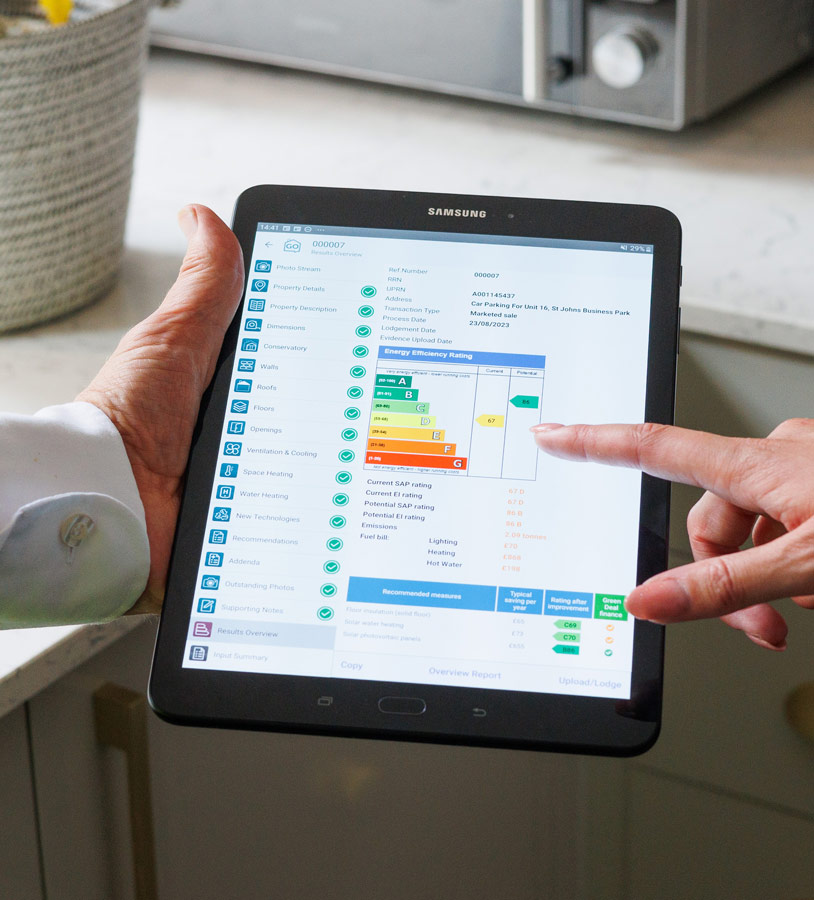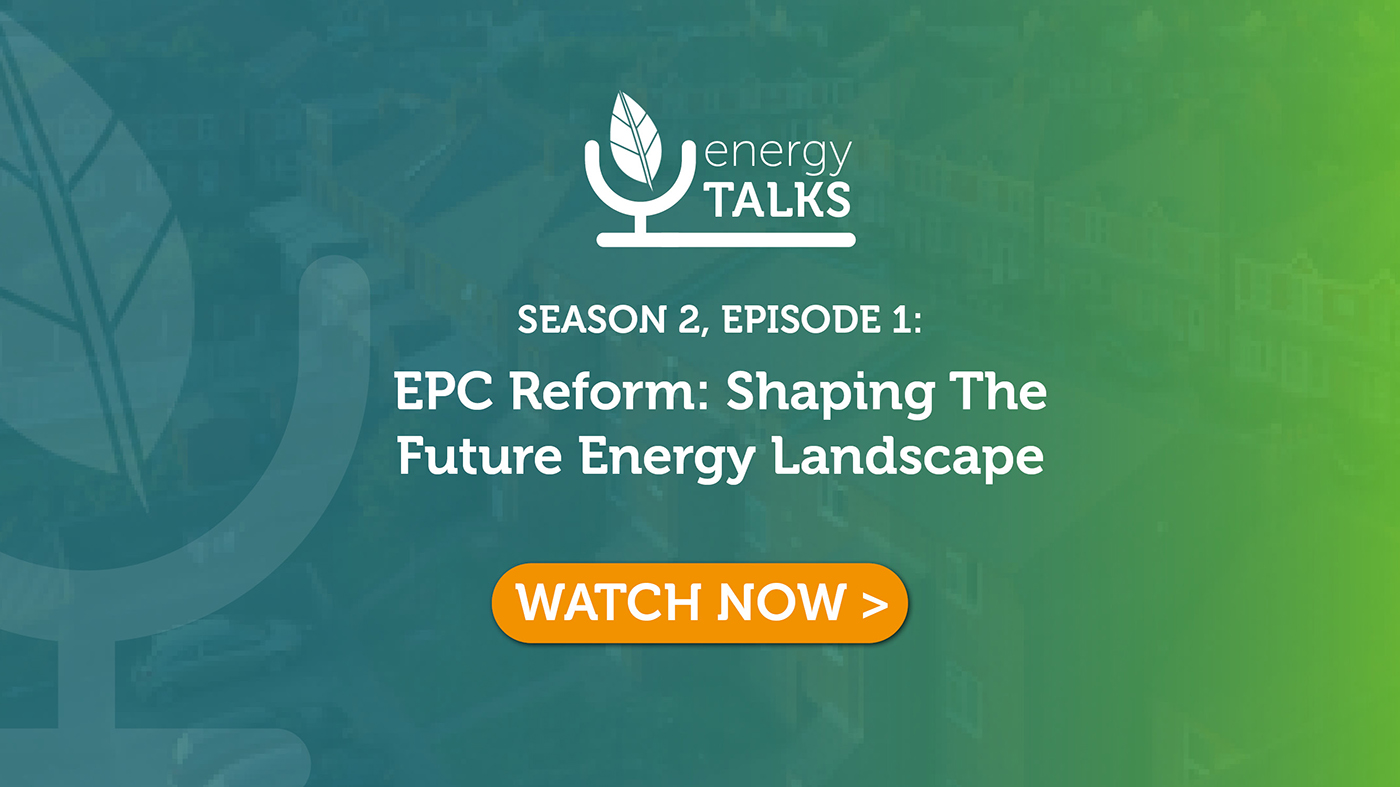Government Releases Landmark Proposal to Reform EPCs
The long-awaited public consultation on Energy Performance Certificate (EPC) reform has been published by the government, proposing important changes to a document which remains key within future energy policy and regulation. The scope of the consultation considers changes to the EPC in England and Wales, with Scottish Government and the Northern Ireland Assembly considering their own changes to EPCs.
Reforms to the EPC, including its requirements and the information it presents, have been under discussion for many years. Amid the ongoing energy crisis, rising fuel poverty, environmental challenges, and energy security concerns, EPCs are facing heightened scrutiny and criticism. Calls for reform have grown stronger, with numerous industry organisations, including Elmhurst, highlighting key issues and offering recommendations to ensure EPCs remain fit for purpose.
Changes are essential to future-proof EPCs, particularly as the country works towards decarbonising its building stock in line with its net zero commitments.

What is an Energy Performance Certificate?
An Energy Performance Certificate (EPC) is a legally valid document that provides an energy efficiency rating (displayed on an A-G scale) in relation to a property’s running costs. This rating currently takes into account the potential energy performance of the property and its services.
EPCs play a crucial role in retrofitting the UK’s buildings. They enable stakeholders to assess the performance of a building stock and can inform policy, finance and household decision making.
FIND OUT MORE >Why is EPC reform needed?
Calls for the reform of EPCs have steadily increased over the years and a number of organisations from across the industry, including Elmhurst, have highlighted issues with EPCs and provided recommendations for positive change, to ensure that they are fit-for-purpose.
EPC Reform should enable EPCs to provide easier to understand information of a building and how to improve it to lower fuel bills and reduce carbon emissions.
What is the consultation proposing?
This consultation seeks views on the reforms to the Energy Performance of Buildings (EPB) framework, applicable in England and Wales. In addition to proposed changes Domestic and Non-Domestic EPCs, the consultation also looks at potential revisions to Display Energy Certificates (DECs) required for public buildings and Air Conditioning Inspection Reports (ACIRs).
Complementary metrics
A key change proposed for the EPC is how it appears to the end consumer. The current EPC appearance is recognisable from the colourful A to G rating scale (A+ to G for Non-Domestic EPCs) presented at the top. For Domestic EPCs this simply represents the energy cost of a property – i.e. how cheap or expensive a home might be to run, based on a standard occupancy model. Government regulations, such as Minimum Energy Efficiency Standards (MEES), use this metric. The Non-Domestic EPC differs from this, as the graph represents an Environmental Impact Rating (EIR) and is based on carbon emissions instead.
The EPC Reform consultation acknowledges flaws in both headline metrics:
“The government recognises the current metrics may not provide a sufficiently rounded picture of performance and could better support government priorities such as delivering net zero by 2050, tackling fuel poverty, and improving decency.”
The government is proposing to introduce a number of different metrics on EPCs to provide a more complete representation of building energy performance. These include:
- Energy cost: helping individuals understand the financial implications of a building’s energy efficiency and make informed decisions about potential improvements
- Carbon: an estimate of the carbon emissions arising from the energy used in the building
- Energy use: offering insights into overall energy consumption and identifying areas for energy efficiency improvements
- Fabric performance: assessing the thermal performance of a building’s envelope
- Heating system: providing information on the efficiency and environmental impact of a building’s heating source
- Smart readiness: assessing a building’s potential to integrate smart technologies that can optimise energy consumption
The consultation highlights that Domestic EPCs would use four headline metrics which includes: ‘fabric performance’, ‘heating system’, ‘smart readiness’ and ‘energy cost’. Other metrics would then be provided as secondary information which would be less prominent on the EPC.
Non-Domestic EPCs will likely maintain the single headline carbon metric in the short term, as they are already carbon focused and aligned with net zero objectives. It is acknowledged however, that new primary or secondary metrics could be added in time.
Moreover, the consultation suggests potential updates for future EPCs, which could include metrics related to a building’s resilience to climate change impacts, occupant health and wellbeing, biodiversity, and water efficiency.
Increasing requirements for EPCs and DECs
The consultation proposes a change to when an EPC is required for a property. At present, the validity period of an EPC is 10 years, and a valid EPC is required when a property is marketed for sale or let or is newly constructed.
The consultation now poses the question as to what the validity period for EPCs should be, presenting 6 different options, ranging from less than 2 years to 10 years. A reduction of validity period is also being proposed for DECs, from 10 years to 7 years for buildings between 250-1,000m², and from 7 years to 5 years for buildings over 1,000m (DEC Recommendation Report Only).
As well as the validity period, the government is also considering increasing the requirements/trigger points for EPCs. One of the biggest proposals here includes the need for private landlords to get a new EPC when their current EPC has expired. This would support energy performance improvements in PRS buildings that are subject to Minimum Energy Efficiency Standards (MEES).
Other changes being proposed which will likely widen the scope of energy certificates include:
- Removing the ability for heritage buildings to claim exemptions
- Bringing all HMOs (House in Multiple Occupations) and almost all short term lets into scope
Training and Standards
The consultation is also looking at energy assessors; the training they receive to qualify, as well as the ongoing competency they need to deliver energy certificates for different buildings.
Elmhurst, as a government approved accreditation scheme, welcomes all new members irrespective of where they have trained. However, the increase in independent training organisation has resulted in a mixed bag, when it comes to the quality of qualified assessors.
The government is proposing options to tighten this up and identify areas where additional/optional training would be of use., This could include energy assessment of heritage buildings for example.
Air Conditioning Inspection Reports (ACIRs)
The consultation notes how the current format for ACIRs can be seen as complex and repetitive, meaning system operators may not fully engage with or fully understand the findings or recommendations within the report.
To improve this, the government is proposing a redesigned ACIR, to include the following information:
- the likely efficiency of the system and any suggestions for improvement of any faults identified
- the adequacy of equipment maintenance and any suggestions for improvement
- the adequacy of the installed controls and control settings and any suggestions for improvement
- the current size of the installed system in relation to the cooling load and any suggestions for improvement
- consideration of the capabilities of the system to optimise its performance under typical operating conditions
- a summary of the findings and key recommendations
Other changes
Additional changes proposed in the consultation include:
- Tweaks to make the data more accessible, including allowing data from previous EPCs to be used in new ones.
- Updates to penalties to better align them with the relevant costs for compliance. Currently, some fines may be cheaper for individuals than the cost of complying with regulations, such as MEES.
- Call for evidence for what more can be done to improve EPC quality and reduce frauds.
Timeline for implementation
This consultation is scheduled to last for 12 weeks, from 4th December 2024 to 26th February 2025.
Once the consultation closes, the government will review all responses and aim to release an initial statement response within the following 12 weeks. Additional time will then be taken to ensure that the intended changes are accurately reflected in legislative clauses.
An updated Energy Performance of Building Regulations (EPBR) is then expected in early 2026. Some changes, such as metrics, will need to be incorporated into the underlying methodologies.
It is anticipated that any changes to the EPC metrics will be introduced in the second half of 2026.
Elmhurst’s thoughts
Elmhurst welcomes this long-awaited consultation. EPC Reform is something that Elmhurst has continued to lobby government and industry on since 2019 and perhaps even earlier then that (as can be evidenced in our 2019 manifesto, and this year’s Almanac).
We generally support this consultation which aims to widen the scope of energy certificates, potentially reduce how long they are valid for and demystify them for the end consumer through the introduction of new metrics and a change to their format.
The new headline metrics proposed for the Domestic EPC are a good first step, but we do have some concerns about whether the ones selected will resolve any misunderstandings when it comes to a consumers view of the EPC.
Elmhurst has long advocated for the EPC to give equal prominence to 3 metrics; Cost, Carbon and Energy Consumption. These 3 metrics provide clear information of the property in question and can be easily be adapted for legislation, which can refer to the relevant metric that it intends to improve. Fuel poverty legislation, for instance could continue to focus on the cost metric, while climate change policies could target improvements based on the carbon metric.
We encourage all Elmhurst members, and anyone involved in the industry to read and respond to the government consultation. Elmhurst will review the EPC Reform Consultation is greater detail over the coming weeks and provide a draft consultation response for members to review.
Further resources
To read the government consultation, please click the following link: https://www.gov.uk/government/consultations/reforms-to-the-energy-performance-of-buildings-regime/reforms-to-the-energy-performance-of-buildings-regime
This consultation is scheduled to last for 12 weeks, from 4th December 2024 to 26th February 2025.

Watch The Energy Talks Podcast
In our first episode of season 2, Andrew Parkin is joined by Sam Cantle and special guest Keeran Jugdoyal from the Ministry of Housing, Communities and Local Government (MHCLG).
Watch now to hear about the EPC Reform consultation, including why EPC reform is needed, the proposed changes, next steps and more.
Watch Now >